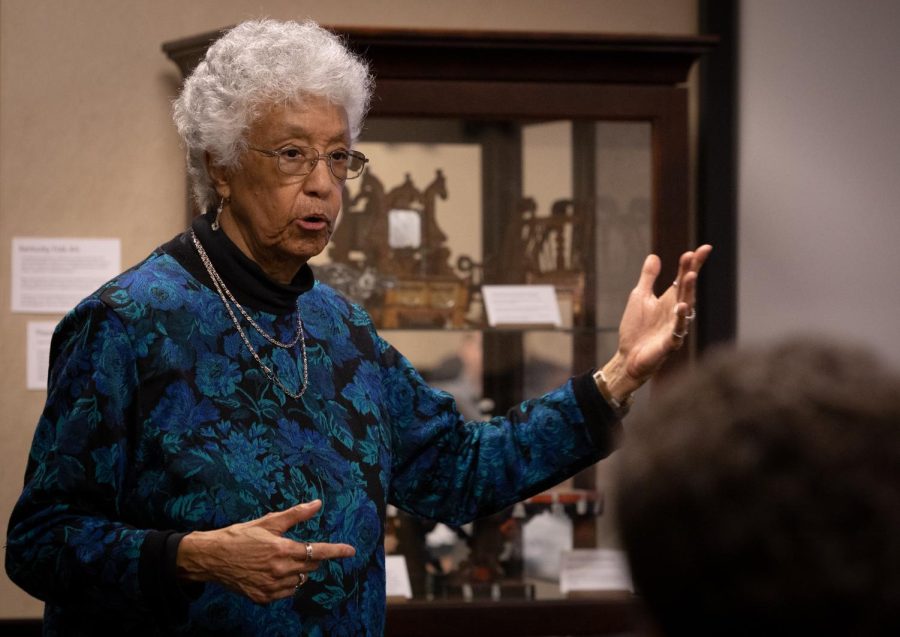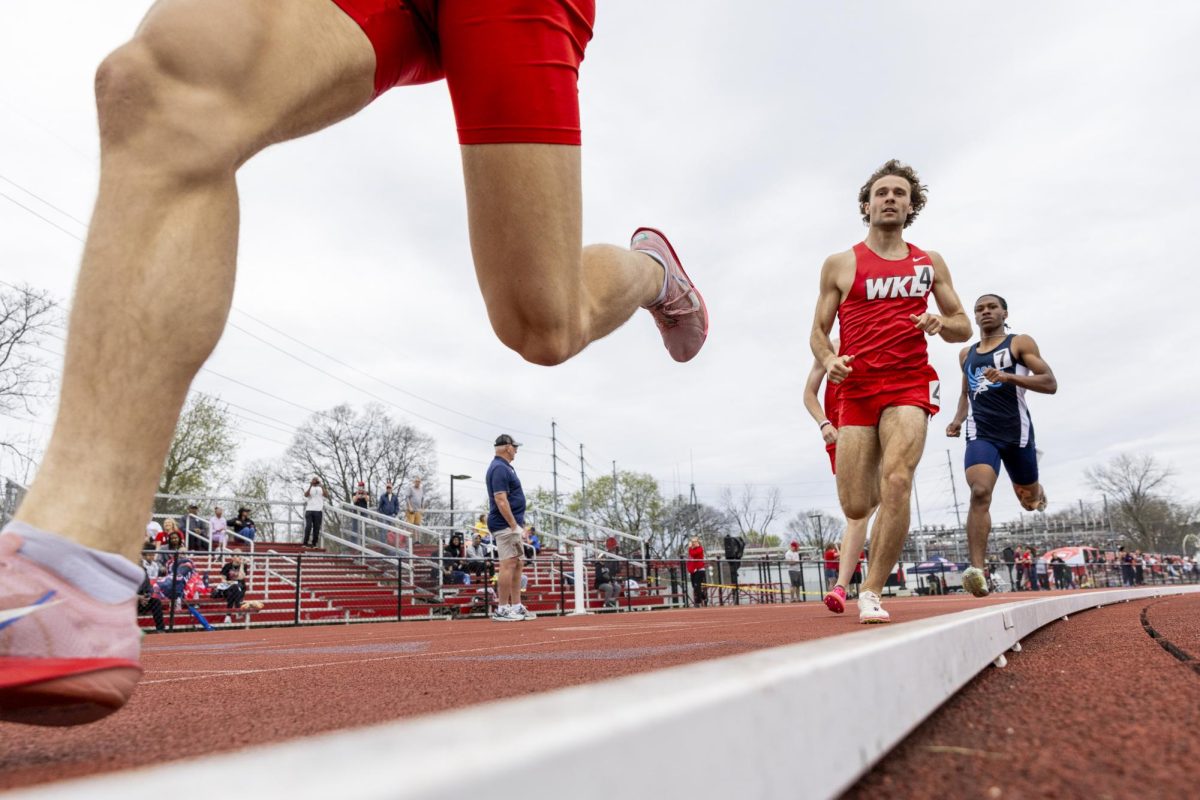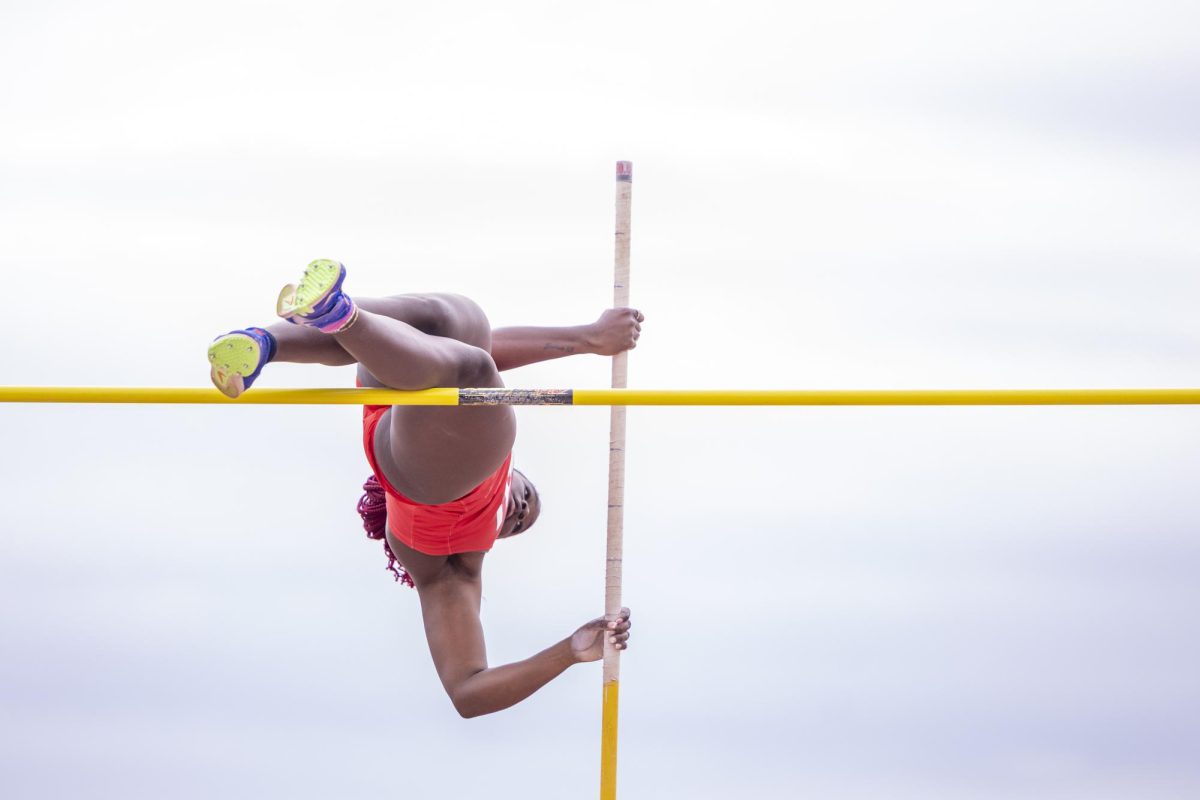‘So much more work to do’: Folklorist presents for WKU Folk Studies 50th Anniversary Series
Marilyn White, president of the American Folklore Society and former WKU faculty member, presents during the Folk Studies 50th anniversary speaker series at the Kentucky Museum on Thursday, Feb. 23, 2023.
February 24, 2023
The WKU Folk Studies graduate program hosted its third speaker in the Folk Studies 50th anniversary speaker series at the Kentucky Museum on Thursday, Feb. 23.
Marilyn White, president of the American Folklore Society and former WKU faculty member, was the speaker of the event, presenting “Diss/Connections,” an exploration of her folklore journey, academic folklore programs and her most recent research on Little Cayman island.
Ann Ferrell, director of the folk studies program, introduced the series, which has featured folklorists throughout this academic year. She described the program as a celebration of folk studies accomplishments while also commenting on the suspension of the folk studies graduate program last semester.
“Although in the midst of our 50th anniversary, we have been forced to suspend our graduate program, which is a blow to WKU as well as to folklore studies more broadly, we are here to celebrate the many achievements of our alumni and our faculty over five decades,” Ferrell said.
After an introduction from Jessica Turner, executive director of the American Folklore Society, White began her presentation by stating her description of folklore and her reason for sharing her personal folklore journey.
“While our discipline is incredibly wide ranging, covering almost all aspects of human life, especially with people’s various identity groups, in many respects, it’s also perceived as being esoteric, as not even being recognized as a field of study by some, as being insignificant or lower tier,” White said. “Therefore, one of the questions that we folklorists are interested in is knowing each other’s origin story.”
White said she first attended Hampton University, then went to Indiana University to pursue a masters degree in folk studies after looking at course listings.
“I was a kid who devoured fairy tales and stories from other cultures,” White said.
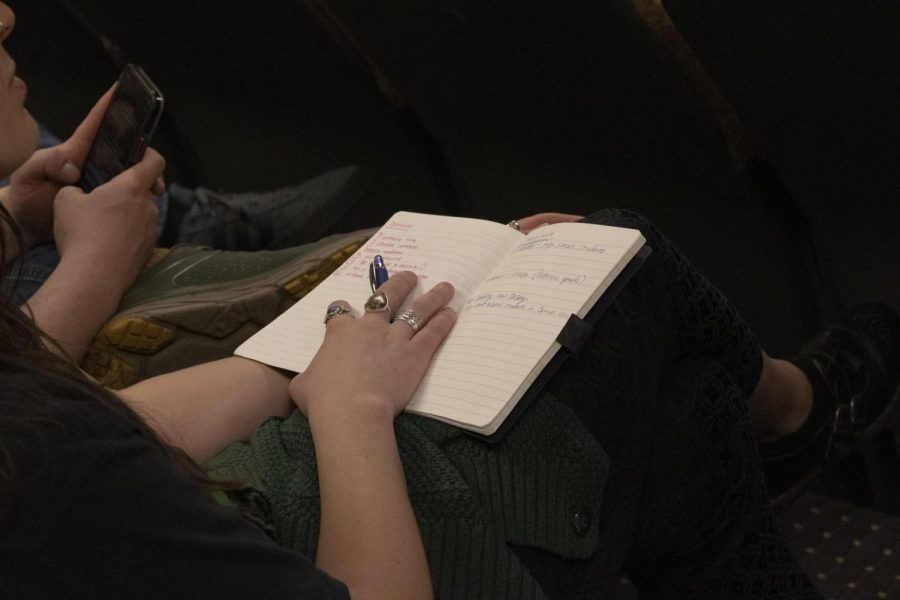
White also explained her experience as a Black woman while studying at Indiana University and her interest in the folklore of her mother’s families.
“When one is in the minority in numbers, one ‘looks for one’s own,’ where you don’t have to be on guard, where there can be shorthand in conversations,” White said. “Because you’re speaking the same language where there is or can be mutual understanding.”
In 1977, White joined WKU faculty as a professor of folklore and Black studies. She described the constant service requested from her at a predominantly white institution as well as the benefits she saw from the position.
“I got to know a wide range of students, some of whom decided to take my classes, thus increasing enrollment,” White said. “I also gave lectures to student groups on campus and community groups off campus. In addition, I had some amazing colleagues in folk studies.”
White also worked as an anthropology professor at Kean University, where she was able to get to know colleagues in folk studies, begin new research and view the strengthening of the African American studies program. She saw a lack in detailed knowledge of African American history and accomplishments and took part in strengthening the program.
“We sought to rectify that lack both for the students as well as for the faculty,” White said.
On the topic of multicultural studies, such as African American or Native American studies, White stressed that these types of individualized programs are essential.
“It’s so much more than throwing them all in one big mishmash and talking about multicultural studies,” White said. “That’s seriously insufficient and so problematic.”
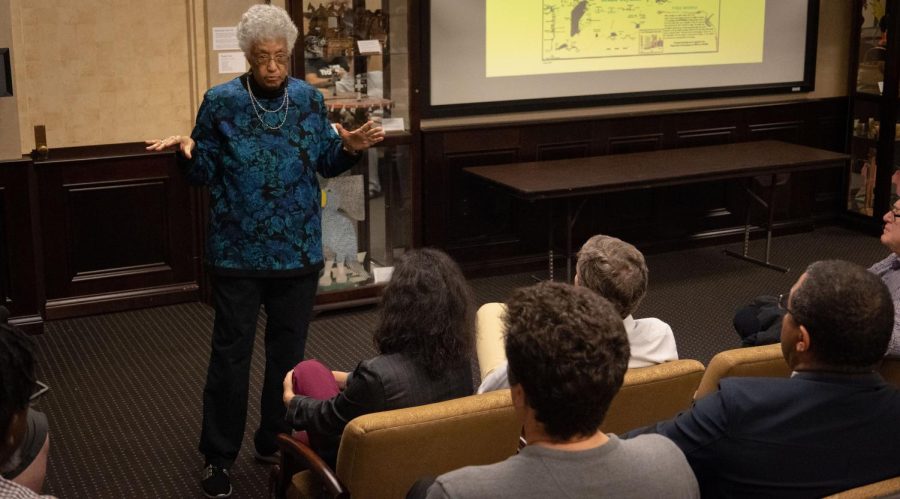
White concluded her presentation with statements on the importance of folk studies, which gives a platform to tell the stories of people and their cultures.
“People want to tell, need to tell, [and we should] help provide a platform for their voices, their knowledge, the dances, their music, their arts, their crafts,” White said. “Let them know that who they are, what they do, and what they know are all valuable and should be studied and shared widely.”
Cori Cox, a first year student in the folk studies graduate program, said White’s presentation reignited what she views as the importance of folk studies.
“I definitely learned the importance of the ongoing conversation between fields, as well as lighting a fire within me for the importance of folk studies and its relationship with marginalized communities,” Cox said.
For WKU specifically, White believes that the legacy of the folk studies program is vital to recognize and learn from.
“My hope is that the powers that be here at WKU can actually see and hear and learn and understand the incredible legacy that this program has created,” White said. “There’s still so much more work to do.”
Content editor Alexandria Anderson can be reached at alexandria.anderson337@topper.wku.edu.


